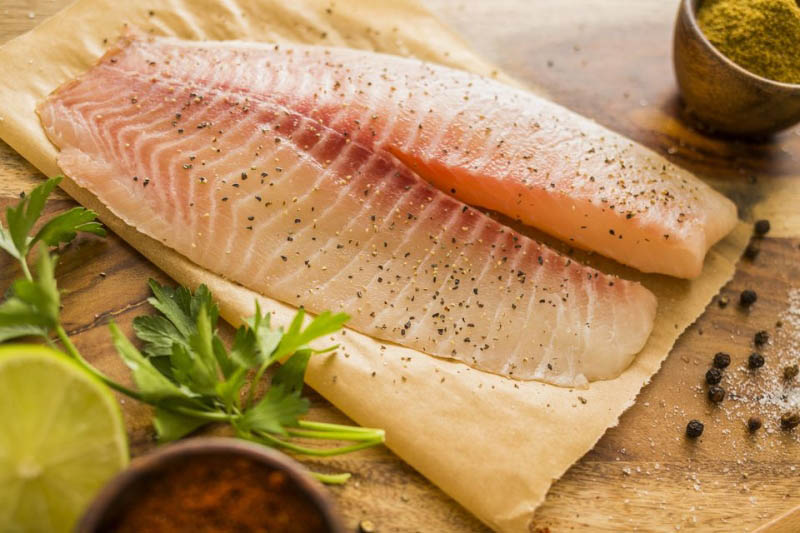Surfin' Up Strong Fish for a Better Tomorrow
by CWA
@ 29 Mar 2019

We talk about responsible sourcing and finding alternative ways to replace our fish sources, which does include farming new kinds of fish to fulfill supply. Scientists in Singapore are looking at breeding new, tough, fast-growing superfish that have extra amounts of healthy fat in efforts to produce more local, high-quality protein.They call it "premium tilapia" , and it's said to be disease-resistant and rich in Omega-3
Currently, the fresh "premium tilapia" are being bred in Temasek Life Sciences Laboratory (TLL), and will be joinining the ranks of locally produced fish stock - TLL-bred sea bass and barramundi developed by Barramundi Asia.
The fish supply in Singapore is fairly low: last year only 9 percent of the fish eaten in Singapore were produced locally. This makes it pertinent to raise a new kind of fish as a small country vulnerable to food disruption would need high-tech and high-intensity fish farming to help it be self-sufficient in producing its own food.
To develop the superfish, the lab has been collaborating with the Agri-Food and Veterinary Authority (AVA) on improving the yield and quality of tilapia through selective breeding.
Researchers from the lab identify and mate the best fish, also known as the brood stock, to produce schools of tilapia that inherit the superior traits.
Currently, the team is working on improving the resilience of the fish so that they can thrive in crowded fish farms and adapt to seawater.
"Tilapia is a traditional brackish-water or freshwater fish. In Singapore, we don't have much freshwater sources. But we have a lot of coastal lines, so we are working on adapting our tilapia to grow in seawater," said Dr Liew Woei Chang, research investigator at TLL.
TLL is also using a sex-reversal method to produce all-male tilapia as the male fishes grow twice as fast as the female ones. The lab said more male fishes will also prevent unwanted breeding.
For more information regarding the fish, please go here to learn more.
 We talk about responsible sourcing and finding alternative ways to replace our fish sources, which does include farming new kinds of fish to fulfill supply. Scientists in Singapore are looking at breeding new, tough, fast-growing superfish that have extra amounts of healthy fat in efforts to produce more local, high-quality protein.They call it "premium tilapia" , and it's said to be disease-resistant and rich in Omega-3
We talk about responsible sourcing and finding alternative ways to replace our fish sources, which does include farming new kinds of fish to fulfill supply. Scientists in Singapore are looking at breeding new, tough, fast-growing superfish that have extra amounts of healthy fat in efforts to produce more local, high-quality protein.They call it "premium tilapia" , and it's said to be disease-resistant and rich in Omega-3